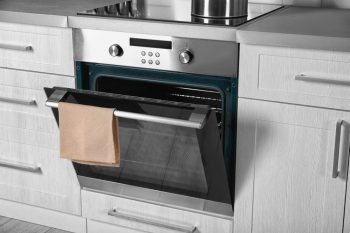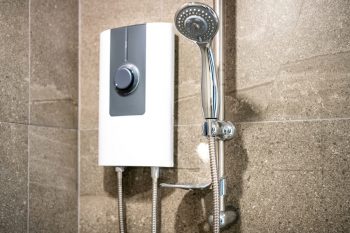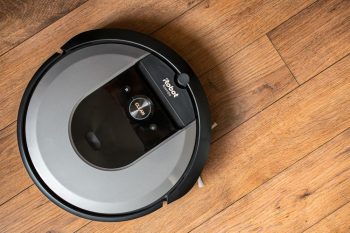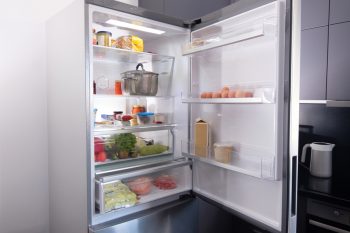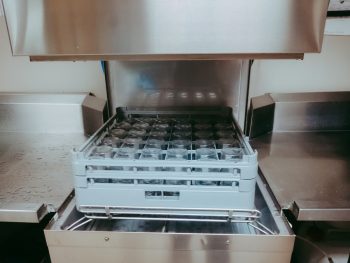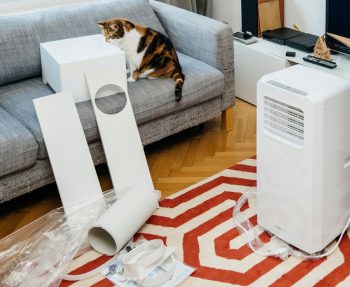
Hot summer days can test anyone’s patience. However, you might bear the outside heat during the initial summer months of March and April.
However, as soon as May starts, the heat intensifies daily. Then, in the peak months of June and July, the heat can go out of hand, making you sweat and thirsty and wanting your inside house to be even cooler.
Survival is not very easy in the hot summer season, especially as the sudden climatic change of today is happening around.
We all trust air cooling units in our homes to survive in the hot season. The temperature drop feature on the air conditioner lets you cool the room at your desired temperature setting.
However, as everything has a defined limit, so is the case with an air conditioning system.
Your air conditioner is not a magic stick that you can blow and make your home a standing Alaska while everything outside melts with heat. You must know it is just not as simple as it seems.
When the outside temperature goes up as much as 90 degrees Fahrenheit, along with the suffocating humidity, it can also limit your air conditioner’s tuned working and hinder it.
The cooling capacity of an air conditioner can allow removing enough heat from your place to drop the temperature by as much as 20 degrees Celsius. Beyond this limit, your refrigerator’s compressor cannot increase heat exchange or drop the temperature further.
On a 40 degrees Celcius day, your air conditioner can only drop the inside temperature to 20 degrees celsius and no further.
If you keep lowering the temperature on the air conditioner, it will only keep working for long hours but will not significantly change the temperature.
This article will explain the highest degree that your air conditioner can make your home cool. Moreover, you will also learn the limitations your air conditioner may face.
Why My Air Conditioner Is Not Working Up to My Expectations?

If you are shedding a flood of sweat and wondering if your air conditioner is cooling or just giving out air, you can get the answer here.
Many people like you are unhappy and unsatisfied with the temperature their air conditioner is giving out. It is completely understandable how frustrating that can be!
All homeowners with air conditioners must understand that your air conditioner will not always work up to your expectations. No matter how contemporary, expensive, or unique, it will still have some limitations.
As a rule of thumb, your air conditioner can only cool your place up to twenty-five degrees, which means it’s maximum performance. Usually, the range only falls between 10-25 degrees, not beyond!
If the temperature outside is 45 degrees Celsius, your air conditioner can only drop it to 20-30 degrees Celsius inside your home.
Now, even if you set the temperature at 12 or 16 degrees, your place will still not get cooler than 20 degrees because the limit is already reached. So you are only overusing the system for what it simply cannot achieve.
Can Lower the Temperature of the Thermostat Help in Cooling?

If you are setting a very low temperature on the thermostat, hoping that your air conditioner will work more, produce more cooling, and help improve your home’s internal environment, you might be fooling yourself.
Even if you have kept the temperature on the thermostat very low, the temperature will still not go below a 20 degrees limit. At least on an extremely hot summer day, you cannot expect this from your air conditioner.
Although you might be able to achieve it at night as the temperature automatically drops. This can only cause you a bigger problem of paying a huge bill as your air conditioner will show constant use.
Many people think setting the thermostat too low will help make your home very cool. However, that’s not true. The air blower can only work at an optimal speed.
Even if you utilize all the humidifiers to remove the moisture from your place, you will still receive the same temperature from the air conditioner registers, either if the temperature is set at 15 degrees Celsius or 25 degrees Celsius.
Can a Larger, More Powerful Air Conditioner Be the Solution?

Many people think that by increasing the size of their air conditioner, they can increase the cooling power and hence lower the temperature of their place.
However, that is not true. Even a bigger and more powerful air conditioner is not the solution to the problem.
If the air conditioner is too big, it will lead to short cycling. During short cycling, the air conditioner will turn on and off automatically, not letting the fan condition the inside air.
Air circulation is also important as it helps to remove the warm air inside the air ducts and remove it from the outside.
Disadvantages
Since a bigger air conditioner will cool your inside space too fast, it will not actually remove the humidity from the inside, creating other problems.
Moreover, it will decrease the air conditioner’s life expectancy by constantly running on and off. Thus, the system will only effectively cool your place for a very short period.
These problems can be overcome by using a furnace fan. It will push the humid air toward the air ducts and help easily dehumidify the air, saving the energy of the aid conditioner for cooling.
Factors Affecting the Optimal Function of Your Air Conditioner

If your air conditioner cannot even provide a 20 degrees Celsius difference in the temperature and is lying below this limit, there might be some problem with it.
The factors that can affect the performance of an air conditioner are the following:
1. The Air Conditioner Is Undersized

If you have installed the wrong size of air conditioner in your place, problems can be imminent. An undersized unit will not be able to cool your place adequately.
The problem will be even more prominent upstairs, where the effect of heat is much stronger.
2. The Air Conditioner Is Not Installed Properly
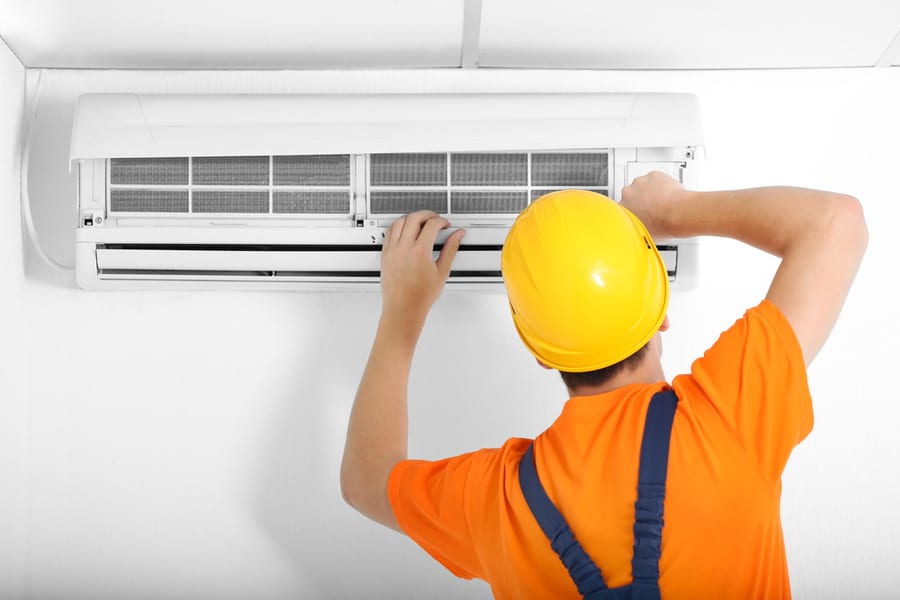
Installation of an air conditioner might seem simple, but if not done carefully, it can lead to many more problems.
At first, the wrong ductwork size will create hot and cold spots in the home.
Secondly, it can strain your air conditioner excessively, causing it to wear out way too early than its actual useful life.
Moreover, the stress on the system will push your air conditioner to work harder than required, increasing your energy bills.
3. Leakage of Refrigerant

Refrigerant is amongst the most important components of the air conditioner. It absorbs the heat from the inside air and helps drop the room’s internal temperature to a significant degree.
If the refrigerant level of your air conditioner is low, you can easily get a refill to fix the problem.
Additionally, you must check the refrigerant ducts to look for any cracks or holes where the leakage might occur. Then, get the ducts repaired as early as possible to prevent the problem from worsening.
4. Issue With the Filter of the Air Conditioner

If the air conditioner’s filter is dirty or has gone bad, it will directly influence the working of the air conditioner.
Problems with the filter will lead to incorrect temperature control, making your interior hotter than the displayed temperature on the thermostat.
5. Incorrect Insulation

If your home is not insulated or under-insulated, it will cause cool air leakage to the outside.
This will reduce the capability of your air conditioner to cool your place, not because it has some fault, but due to the problem of leakage.
You must also watch the crevices under the door or between the window panes to avoid losing cool air to the outside. You can also replace single-paned windows with double or triple-paned ones to prevent cooling loss.
Ways To Keep Your House Cool
The following are some effective strategies to prevent the loss of cool air to the outside:
- Use curtains or drapes to cover the windows to prevent cool air escape.
2. Install a zoning system in the air conditioner’s ductwork to restrict the cool air flow to unwanted rooms and effectively cool the hottest areas.
3. Use a ductless mini-split to save your money on an expensive zoning system as an alternative.
4. Use dehumidifiers to assist your air conditioner in performing more efficiently in cooling your home.
5. Ensure proper circulation in the ductwork of your air conditioner by cleaning them regularly.
6. Clean and maintain the air conditioner’s coils to prevent dust settlement which can halt the efficient working of your air conditioner.
Conclusion
Your air conditioner can only drop your home’s temperature by as much as 20 degrees. Beyond this limit, even if you keep dropping the temperature on the thermostat, it will still produce the same amount of cooling and will give no significant results.
It is better to work on other factors of maintaining the temperature of your room low rather than decreasing the digits on the thermostat.
These strategies include proper insulation, ensuring good circulation inside the room, cleaning and maintaining the air conditioner, and using a zoning system to prevent cooling loss to the outside.
Frequently Asked Questions
Can the Age of an Air Conditioner Affect Its Cooling Capacity?
The age of an air conditioner is not a significant way to judge its performance. Instead, it all boils down to how perfectly the air conditioner is installed and how much it is maintained.
Your 3-year-old air conditioner might work as fine as it was bought yesterday, only if maintained and installed correctly.
However, as the world of appliances advances, your old big air conditioner might not be as energy efficient as today.
It can consume much more power to generate the same cooling effect as a modern air conditioner with only a small amount of energy.
What Temperature Should I Set My Air Conditioner in the Nighttime?
The best temperature setting for your air conditioner at night is between 15 to 20 degrees Celcius.
Setting the temperature low at night is better to speed up the process, as the body’s temperature drops while we are asleep.
This temperature helps make our body more comfortable and go to sleep.
I Can Leave My Air Conditioner on All Day To Save My Energy Bills. Is This True?
Yes! It is recommended not to turn off your air conditioner on hot summer days as it will make your home hot. When turned on, your air conditioner must work again to reduce the temperature and bring it to the desired setting.
This practice will put more strain on your air conditioner, increasing your electricity bills.
It is wise to leave your air conditioner at around 25 degrees celsius all day to keep your home cool and save on energy bills.

